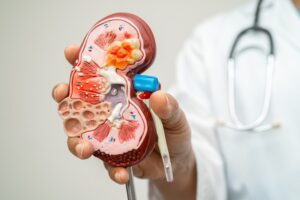How Alcohol Addiction Impacts Mental Health: Breaking the Cycle

Alcoholism is a complex issue that has a significant influence on both physical and mental health. However, the connection between alcohol use and mental health is frequently a vicious cycle: alcohol misuse exacerbates mental health illnesses, while mental health issues might push people to self-medicate with alcohol.
Thus, understanding this dynamic is critical for breaking the cycle and creating a route to recovery. So, join us on this post and learn every related aspect.
The Dual Impact of Alcohol Addiction on Mental Health
- Alcohol and Depression
Being depressive, alcohol slows down brain activity and can amplify depressing, exhausting, and hopeless feelings. Alcoholism can be used by those who are depressed as a short-term emotional diversion, but it eventually worsens the symptoms of depression.
Plus, excessive alcohol use depletes important neurotransmitters that govern mood, such as dopamine and serotonin, making the drinker more susceptible to depressive episodes.
- Alcohol-induced Psychosis
Long-term alcohol misuse can cause alcohol-induced psychosis, which is characterized by hallucinations, delusions, and paranoia. This disorder frequently resembles symptoms of schizophrenia and can cause people to lose touch with reality.
While alcohol-induced psychosis can be resolved with sobriety, it is a frightening and potentially dangerous side effect of addiction.
- Anxiety and Alcohol Use
People with anxiety problems frequently use alcohol to relieve their symptoms temporarily. However, alcohol can exacerbate anxiety disorder in the long run, resulting in a cycle of dependence. After the initial calming impact has worn off, alcohol withdrawal can cause increasing anxiety, restlessness, and panic attacks.
Chronic alcohol use alters brain chemistry, making it more difficult to control anxiety without alcohol.
Breaking the Cycle: How to Start Recovery
Dual Diagnosis Treatment
Dual-diagnosis treatment is critical for people who are struggling with alcoholism and mental health issues. This strategy solves both requirements concurrently, guaranteeing that neither is overlooked. Cognitive-behavioral therapy (CBT), medication management, and support groups for those with co-occurring illnesses are all possible treatment options.
Cognitive Behavioral Therapy (CBT)
CBT is an extremely successful treatment strategy for people dealing with alcoholism and mental health concerns. It enables people to understand harmful thought patterns and actions that contribute to addiction and replace them with healthier coping mechanisms. CBT enables people to stop the cycle of addiction and mental health disorders by addressing the underlying causes.
Medication-Assisted Therapy (MAT)
In some circumstances, drugs may be administered to help manage mental health issues or reduce alcohol cravings. Antidepressants, for example, can be used to treat co-occurring depression, whilst naltrexone or acamprosate can aid with alcoholism. A medical practitioner can build a treatment plan that is specific to the individual’s needs.
Creating a Support Network
Recovery is not a solitary experience. Having a strong support network, whether through family, friends, or peer groups, may make a huge difference. Programs such as Alcoholics Anonymous (AA) and group therapy provide a secure environment in which to share experiences and receive encouragement from others facing similar issues.
Conclusion
The road to recovery from alcohol addiction and its effects on mental health can be daunting, but with the right Mental Health Treatment Center in Pennsylvania, it is possible to break the cycle. Recognizing the interdependence of mental health and alcohol consumption is the first step toward receiving comprehensive treatment. Treatment alternatives such as dual diagnosis programs, therapy, and medication provide a path ahead for individuals devoted to recovery.





